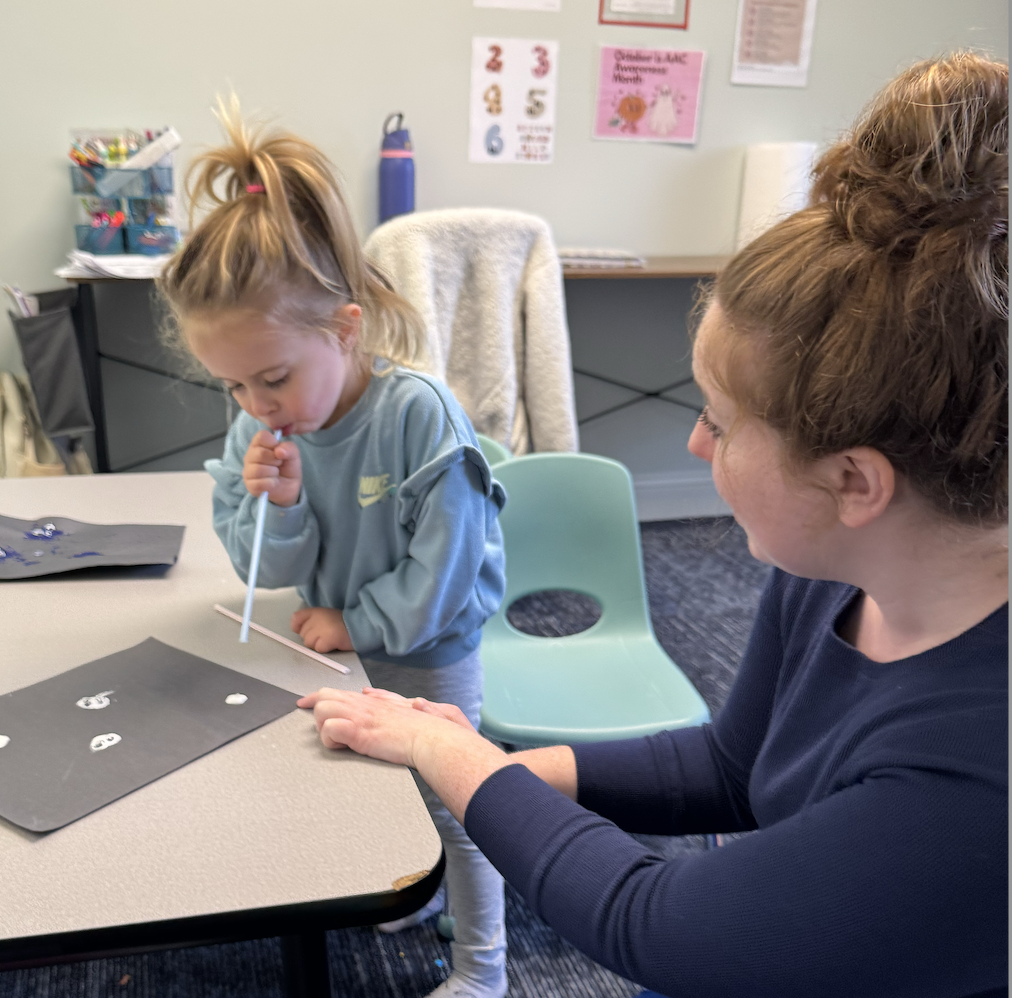What is a SLP?
Speech-language pathologists (SLPs) help people of all ages — especially children — communicate more clearly and confidently. They support speech, language, feeding and swallowing skills.
SLPs assess and treat a wide range of challenges, including trouble with:
Saying sounds clearly (articulation)
Understanding or using language
Functional communication
Stuttering or fluency
Voice quality or tone
Social skills
Swallowing and feeding
They often work closely with children who have developmental delays, autism, or other diagnoses — helping them express themselves, build confidence, and connect with others.
SLPS provide support for
Receptive Language
Understanding of what others are saying. Including following directions, understanding questions, and making sense of stories or conversations. Kids with receptive language difficulties may seem like they're not listening or may have difficulty answering questions.
Expressive Language
Sharing thoughts, ideas, and feelings using words, gestures, or even writing. Kids with expressive language difficulties might have a hard time finding the right words, forming complete sentences, or telling a story that makes sense. They know what they want to say, but getting it out can be a challenge.
Fluency
The flow or rhythm of speech. The most common fluency disorder is stuttering, where someone might repeat sounds (like “b-b-ball”), stretch out sounds (“ssssun”), or get stuck trying to say a word.
Speech sounds
Difficulties with how kids say sounds or words.
For example, a child might say “wed” instead of “red” or leave out sounds completely.
Communication
Communication is more than just talking. It’s how we share and understand messages with others. This includes speaking, listening, using gestures, facial expressions, and even writing. Speech therapists help individuals find a means of communication to improve overall communication skills so that they can connect with others more easily and confidently in daily life.

